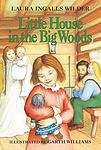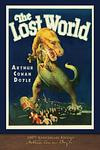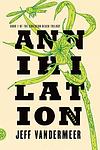The Greatest "Fiction, Geography" Books of All Time
Click to learn how this list is calculated.
This list represents a comprehensive and trusted collection of the greatest books. Developed through a specialized algorithm, it brings together 300 'best of' book lists to form a definitive guide to the world's most acclaimed books. For those interested in how these books are chosen, additional details can be found on the rankings page.
Genres
Geography is a category of books that focuses on the study of the earth's physical features, including its landforms, climate, and natural resources. It also explores the ways in which humans interact with and shape the environment, including topics such as population growth, urbanization, and globalization. Geography books may cover a wide range of subjects, from maps and cartography to cultural geography and environmental science. Overall, the category of Geography offers readers a comprehensive understanding of the world around them and the complex relationships between people and their surroundings.
Countries
Date Range
Reading Statistics
Click the button below to see how many of these books you've read!
Download
If you're interested in downloading this list as a CSV file for use in a spreadsheet application, you can easily do so by clicking the button below. Please note that to ensure a manageable file size and faster download, the CSV will include details for only the first 500 books.
Download-
1. Heart of Darkness by Joseph Conrad
This classic novel follows the journey of a seaman who travels up the Congo River into the African interior to meet a mysterious ivory trader. Throughout his journey, he encounters the harsh realities of imperialism, the brutal treatment of native Africans, and the depths of human cruelty and madness. The protagonist's journey into the 'heart of darkness' serves as both a physical exploration of the African continent and a metaphorical exploration into the depths of human nature.
-
2. Voss by Patrick White
Set in 19th-century Australia, the novel follows a German explorer, Voss, as he leads a doomed expedition into the outback. Parallel to this, Voss develops a romantic relationship with Laura Trevelyan, a young woman he meets before his departure. Despite their physical separation, their spiritual and emotional connection deepens as Voss's journey becomes increasingly perilous. The narrative explores themes of obsession, the human condition, and the dichotomy between civilization and wilderness.
-
3. Little House In The Big Woods by Laura Ingalls Wilder
"Little House In The Big Woods" is a heartwarming story set in the late 1800s, following the life of a young girl named Laura and her family as they navigate the challenges and joys of living in the Wisconsin wilderness. Through vivid descriptions and engaging anecdotes, the book offers a glimpse into the daily routines, traditions, and adventures of pioneer life, highlighting the importance of family, resilience, and the simple pleasures found in nature.
-
4. Silk by Alessandro Baricco
"Silk" is a historical fiction novel that tells the story of a 19th-century French silkworm merchant who travels to Japan for business. During his travels, he becomes enamored with a mysterious woman. His unrequited love for her haunts him for the rest of his life, even as he returns to France and continues his life there. The novel explores themes of love, longing, and the profound impact that brief encounters can have on one's life.
-
5. The Lost World by Arthur Conan Doyle
"The Lost World" is an adventure novel that follows a group of explorers as they embark on a perilous journey to a remote plateau in South America, where prehistoric creatures still roam. Led by an eccentric professor, the team encounters dangerous dinosaurs, hostile tribes, and treacherous terrain, testing their courage and resilience. As they strive to survive and document their discoveries, the explorers face thrilling encounters and unexpected challenges that push them to their limits. This thrilling tale of exploration and survival is filled with suspense, action, and a sense of wonder as the characters navigate the mysteries of this lost world.
-
6. Non Stop by Brian W. Aldiss
In this gripping science fiction novel, a group of humans living on a generational spaceship called the "Non-Stop" embark on a dangerous journey through a mysterious and ever-changing environment. As they navigate the treacherous landscape, they encounter strange creatures and uncover shocking secrets about their own existence. Filled with suspense and thought-provoking themes, the book explores the human instinct for survival and the limits of knowledge in an unfamiliar world.
-
7. Taebaek Sanmaek by Jo Jung-rae
"Taebaek Sanmaek" is a historical novel set in South Korea during the turbulent period from the end of World War II to the aftermath of the Korean War. The narrative focuses on the ideological and political conflicts that divided the nation, including the struggle between the North and South, as well as the ideological battles among the leftists themselves. The story is a deep dive into the complexities of Korean history, culture, and socio-political dynamics, vividly portraying the human tragedies and triumphs during this period.
-
8. Annihilation by Jeff VanderMeer
In the novel, a team of four women—an anthropologist, a surveyor, a psychologist, and a biologist—embark on an expedition into Area X, a mysterious and remote region cut off from civilization. The area is known for its strange occurrences and the disappearance of previous expedition members. As the team delves deeper into the wild and enigmatic landscape, they encounter bizarre creatures, cryptic signs, and the remnants of a lost civilization. The biologist, serving as the narrator, documents their discoveries and her own personal transformations, driven by the unseen forces of Area X. The novel explores themes of nature, mutation, and the unknown, as the expedition's members confront the limits of knowledge and the consequences of seeking to uncover the inexplicable.
-
9. Water Music by T. C. Boyle
"Water Music" is a historical fiction novel that follows the adventures of two men, an explorer and a petty criminal, during the late 18th century. The narrative alternates between the perspectives of the explorer, who embarks on a quest to discover the source of the Niger River in Africa, and the criminal, who is trying to navigate the underbelly of London. The novel blends humor, rich historical detail, and adventure as it explores themes of ambition, survival, and the clash of cultures.
Reading Statistics
Click the button below to see how many of these books you've read!
Download
If you're interested in downloading this list as a CSV file for use in a spreadsheet application, you can easily do so by clicking the button below. Please note that to ensure a manageable file size and faster download, the CSV will include details for only the first 500 books.
Download







